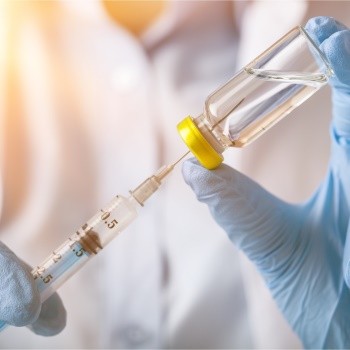
Recently Diagnosed or Relapsed? Stop Looking For a Miracle Cure, and Use Evidence-Based Therapies To Enhance Your Treatment and Prolong Your Remission
Multiple Myeloma an incurable disease, but I have spent the last 25 years in remission using a blend of conventional oncology and evidence-based nutrition, supplementation, and lifestyle therapies from peer-reviewed studies that your oncologist probably hasn't told you about.
Click the orange button to the right to learn more about what you can start doing today.
- You are here:
- Home »
- Blog »
- Multiple Myeloma »
- Multiple Myeloma Diagnosis- SCT?
Multiple Myeloma Diagnosis- SCT?

“These complications have a direct impact on the morbidity and mortality experienced by H SCT survivors. Two-thirds of HSCT survivors develop at least one chronic health condition; while a fifth develop severe…”
Hi David, I had multiple myeloma diagnosis 2 years ago, low risk but 70% plasma cells in my bone marrow. Have tried almost everything I have read short of conventional treatment.
Still progressing but slowly. Slightly anemic but no other symptoms, Started RVD induction and scheduled for Transplant for now. I’m interested in anything I can do that does not interfere with treatment since I have committed to go this route. I would like to learn about the diet as well as supplement interactions. Keith
Hi Keith-
According to research, vitamin C and green tea (EGCG) reduce the efficacy of velcade (bortezomib). If you are taking either of those as supplements or drinking green tea or eating citrus fruits, simply don’t eat or drink either the day before taking velcade or the day after you’ve taken velcade.
On the plus side, there are a host of nutritional supplements that have been shown by research to enhance the efficacy of
- Revlimid (lenalidomide)
- Velcade (bortezomib)
- Dexamethasone
It is your call or course, but if you are low risk (no genetic abnormalities) multiple myeloma diagnosis, in my experience, the standard-of-care (SOC) therapy plan for MM that you outline is too much toxicity.
Yes, I think it makes sense to undergo enough RVD (induction therapy) so that you can stabilize your MM diagnosis. But once you have achieved remission (MRD, sCR, CR, VGPR), I think you should discontinue chemo and let your body health. Your non-conventional nutrition and supplementation will help you at this point.
I will link two important studies below. These studies document two things. First, according to research, only a small portion of the youngest, healthiest, low risk, MM diagnosis patients can achieve a long progression-free survival (PFS- first remission).
Second, those MM patients that undergo an ASCT experience a host of long-term and late stage side effects leading to a lifetime of pain and suffering.
Please read the studies linked below and let me know if you have any questions.
Hang in there,
David Emerson
- MM Survivor
- MM Cancer Coach
- Director PeopleBeatingCancer
Functional Cure, Defined As PFS of More Than 7 Years, Is Achieved in 9% of Myeloma Patients in the Era of Conventional Chemotherapy and of First-Generation Novel Anti-Myeloma Agents; A Single-Center Experience over 20-Year Period
“Between January 1994 and December 2010, 406 consecutive newly diagnosed MM patients received first line therapy in the Department of Clinical Therapeutics (Athens, Greece).
All patients had symptomatic disease, based on the IMWG criteria of that period (at least one CRAB symptom to start anti-myeloma therapy). Thirty-six (8.8%; 23M/13F) patients achieved a PFS of at least 7 years (long PFS group) after frontline treatment.
The median PFS of these 36 patients is 10 years, while the other patients had a median PFS of 22 months…
In conclusion, our study in an unselected group of patients, the majority of whom did not participate in clinical trials, showed that 9% of patients with newly diagnosed myeloma experience prolonged PFS of more than 7 years (median: 10 years) even in the era of CC or first-generation novel agents.
These patients have:
- low risk disease,
- mainly of ISS-1 or -2,
- no high-risk cytogenetics,
- no or mild renal impairment,
- and achieve deep responses after ASCT
Long-term health impacts of hematopoietic stem cell transplantation inform recommendations for follow-up
“However, hematopoietic stem cell transplantation (HSCT) survivors are at risk of developing long-term complications, such as
- endocrinopathies,
- musculoskeletal disorders,
- cardiopulmonary compromise and
- subsequent malignancies.
These complications have a direct impact on the morbidity and mortality experienced by HSCT survivors. Two-thirds of HSCT survivors develop at least one chronic health condition; while a fifth develop severe or life-threatening conditions. HSCT patients who have survived for at least 5 years post-transplantation are at a fourfold to ninefold increased risk of late mortality for as long as 30 years from HSCT, producing an estimated 30% lower life expectancy compared with the general population…
Hematopoietic stem cell transplantation
“Hematopoietic stem-cell transplantation (HSCT) is the transplantation of multipotent hematopoietic stem cells, usually derived from bone marrow, peripheral blood, or umbilical cord blood.[1][2][3] It may be autologous (the patient’s own stem cells are used), allogeneic(the stem cells come from a donor) or syngeneic (from an identical twin).[1][2]
It is most often performed for patients with certain cancers of the blood or bone marrow, such as multiple myeloma or leukemia.[2] In these cases, the recipient’s immune system is usually destroyed with radiation or chemotherapy before the transplantation. Infection and graft-versus-host disease are major complications of allogeneic HSCT.[2]”


